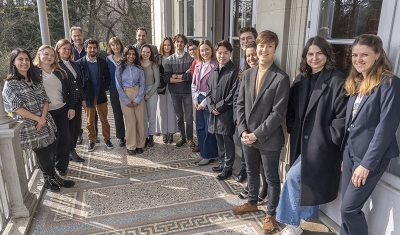13 November 2024
At the 34th International Conference of the Red Cross and Red Crescent, we recently hosted a booth in the Humanitarian Village together with Geneva Call and the Ministry of Foreign Affairs of Norway.
Through an interactive quiz titled ‘Universality in Question(s),’ we invited participants to reflect on their understanding of International Humanitarian Law (IHL), particularly its unique universal nature.
IHL is framed as an international legal framework embodying values recognized by the global community. The rules, aimed at limiting the effects of armed conflict, are fundamental. However, their universality is sometimes debated. This quiz highlighted how the principles of IHL, while formalised in modern times, trace back to the practices of ancient civilizations. By presenting historical facts and similar wartime rules across cultures, we illustrated the universal resonance of IHL principles. The goal was to emphasise that these foundational ideas predate the Geneva Conventions and foster broader adherence through shared human values of refraining from atrocities in wartime.
This activity opened discussions between attendees and representatives from our two organisations present at the booth. It allowed the Academy to showcase its work in both research and education, through which it supports the humanitarian community and promotes greater respect for international humanitarian law.







